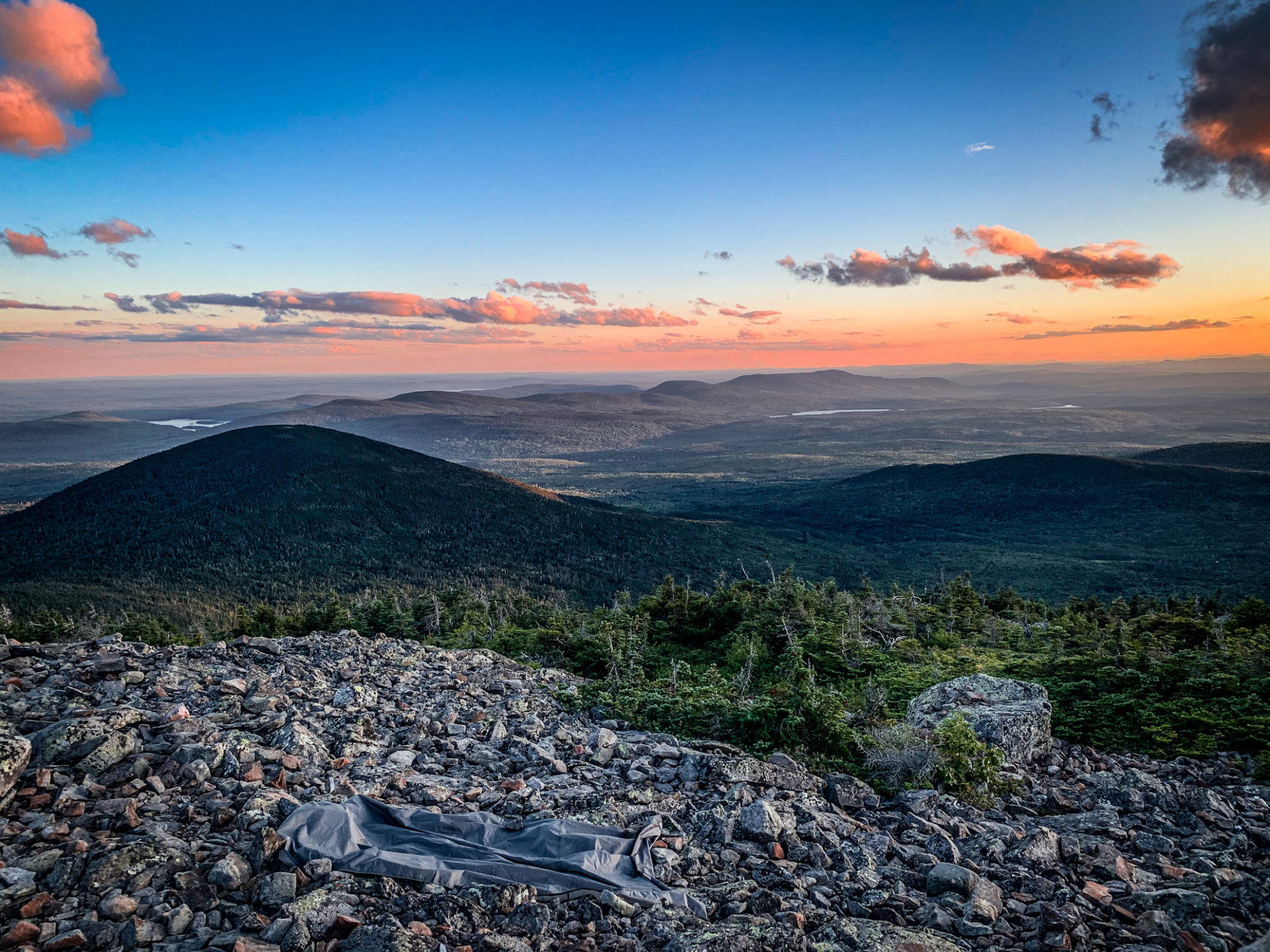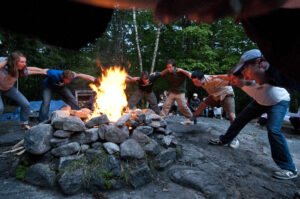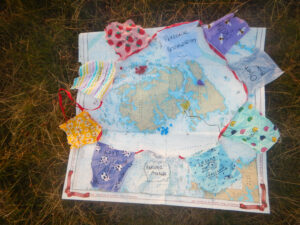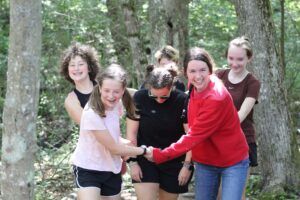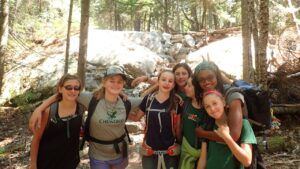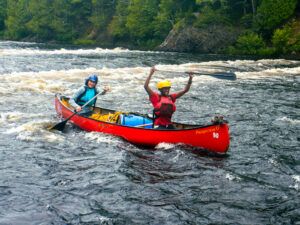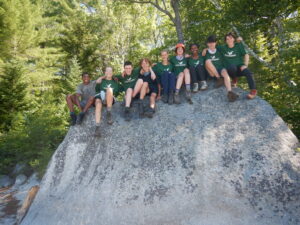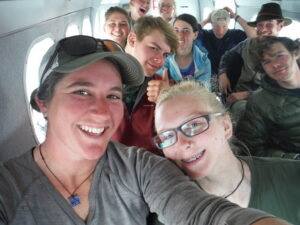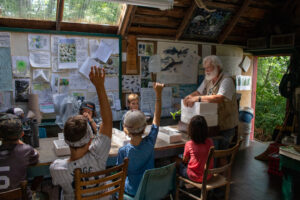Shane Killen has an eye for adventure. A junior at Carnegie Mellon University, he’s spent ten summers at Camp Chewonki for Boys, first as a camper, then cabin counselor, where he earned notice for his vivid photographs of Chewonki wilderness expeditions. When a close friend and roommate (and novice backpacker) expressed interest in exploring Maine by foot this summer, Killen was in, and he brought his camera, too.

Like so many people this year, Killen and his roommate spent several months secluded in their apartment due to the coronavirus pandemic. After creating their itinerary, (ten days in Maine’s Hundred-Mile Wilderness), the pair questioned whether it would even be logistically possible – what if the trails weren’t open? What if they weren’t allowed to travel across state lines? Then Chewonki canceled summer programs, giving Killen another jolt (he would have been a lead counselor this year). Despite all odds, the duo arrived in Monson, ME, in August – loaded up and ready to hike.
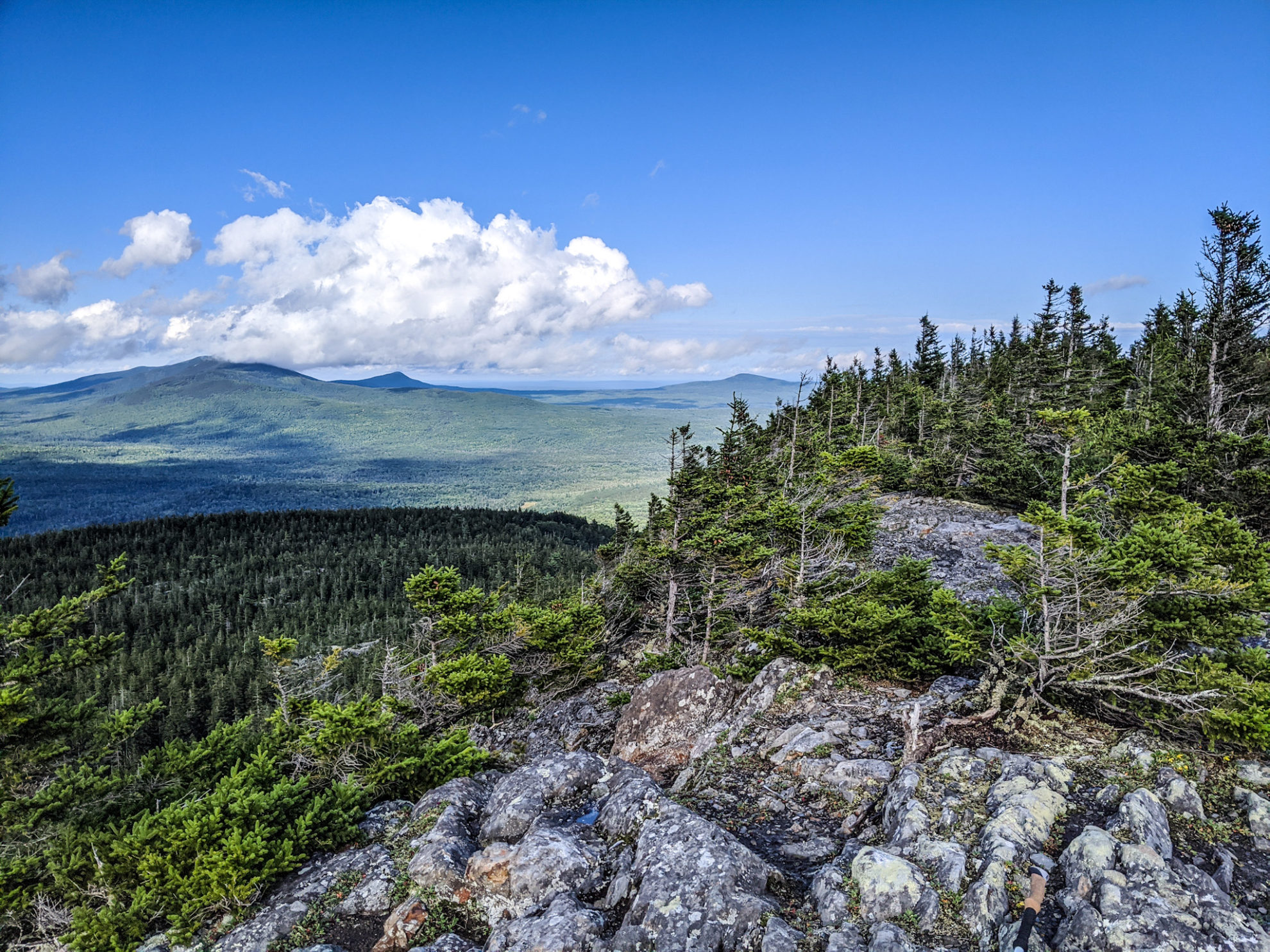
The Hundred-Mile Wilderness is one of the most challenging sections of the Appalachian Trail. Surrounded by large tracts of undeveloped land, the isolated route stretches from Monson to Baxter State Park. “There’s nothing but you and the Wilderness,” says Killen. This trip would be his first-time hiking in such a small group, and he felt both excited and nervous.
Right away, the Hundred-Mile Wilderness challenged their determination and stamina. The pair set-up camp early on the first day because they overestimated their ability to traverse the rugged mileage and vertical feet. But they kept going, and Killen says he started to surprise himself —
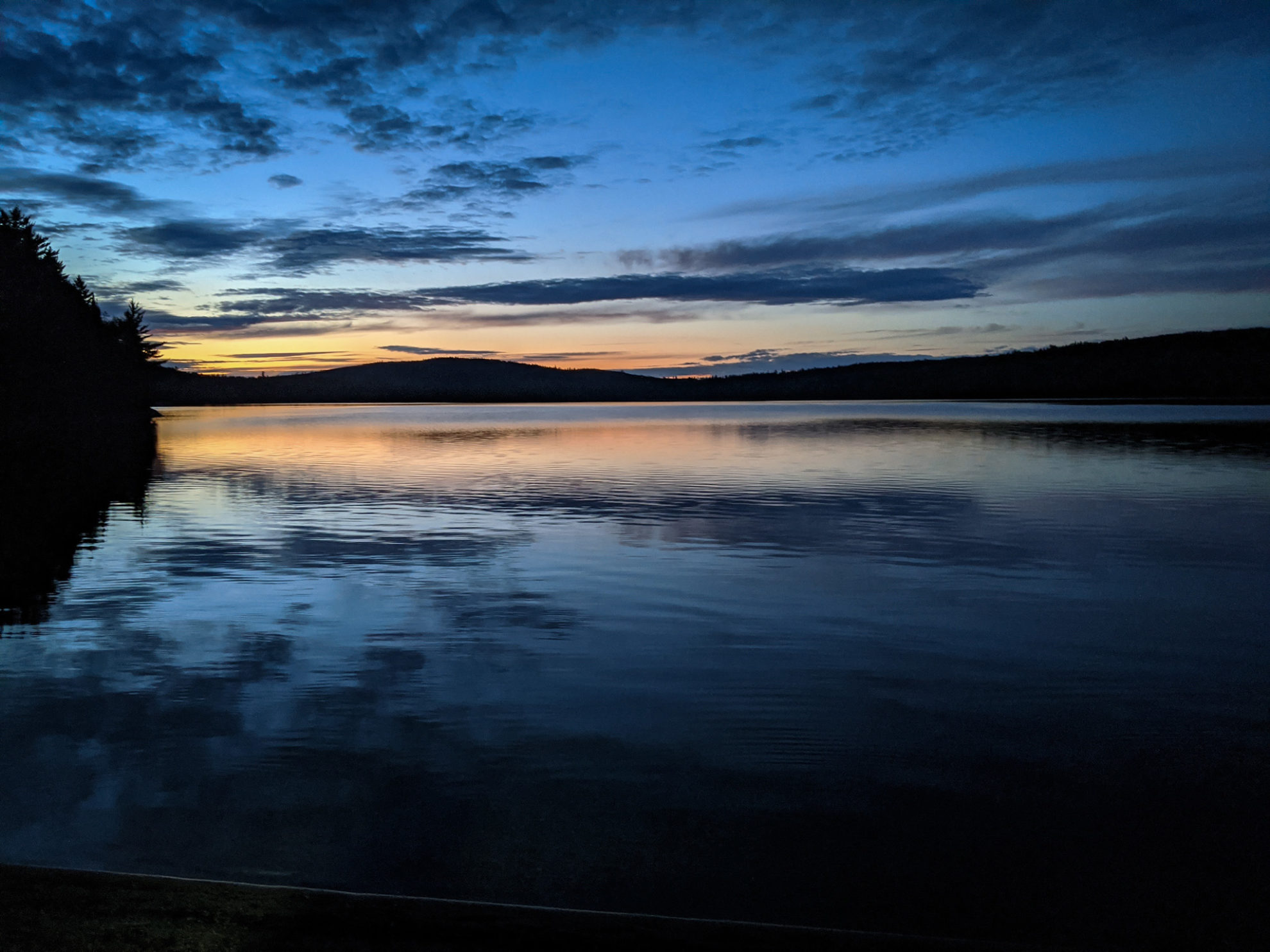
“The entire trip pushed my limits,” Killen said, “I was amazed by how far I could go.” The pair went a little further each day, picking up the pace until they were covering a substantial amount of ground. After years traveling with groups of young campers, Killen revelled in the opportunity to push himself as far as his blistered feet would take him – an average of twelve to fourteen miles a day.
Their grit and determination propelled the pair up Whitecap Mountain at sunset – a pivotal moment in their journey. “It brought me back to Chewonki,” says Killen. As a young camper, Killen’s counselor woke his cabin group before sunrise one morning while they were on expedition, and led the group up a mountain as the sun rose over the distant peaks. “There are no other words to describe it than beautiful,” says Killen. “I have mild cerebral palsy, and being at Chewonki pushed me physically. Growing up, I didn’t think I was capable of a lot of things, but that was a moment that I realized that I was a lot more capable than I thought. That was really special.” As a counselor, Killen carried on the sunrise hike tradition with his cabin groups each summer.
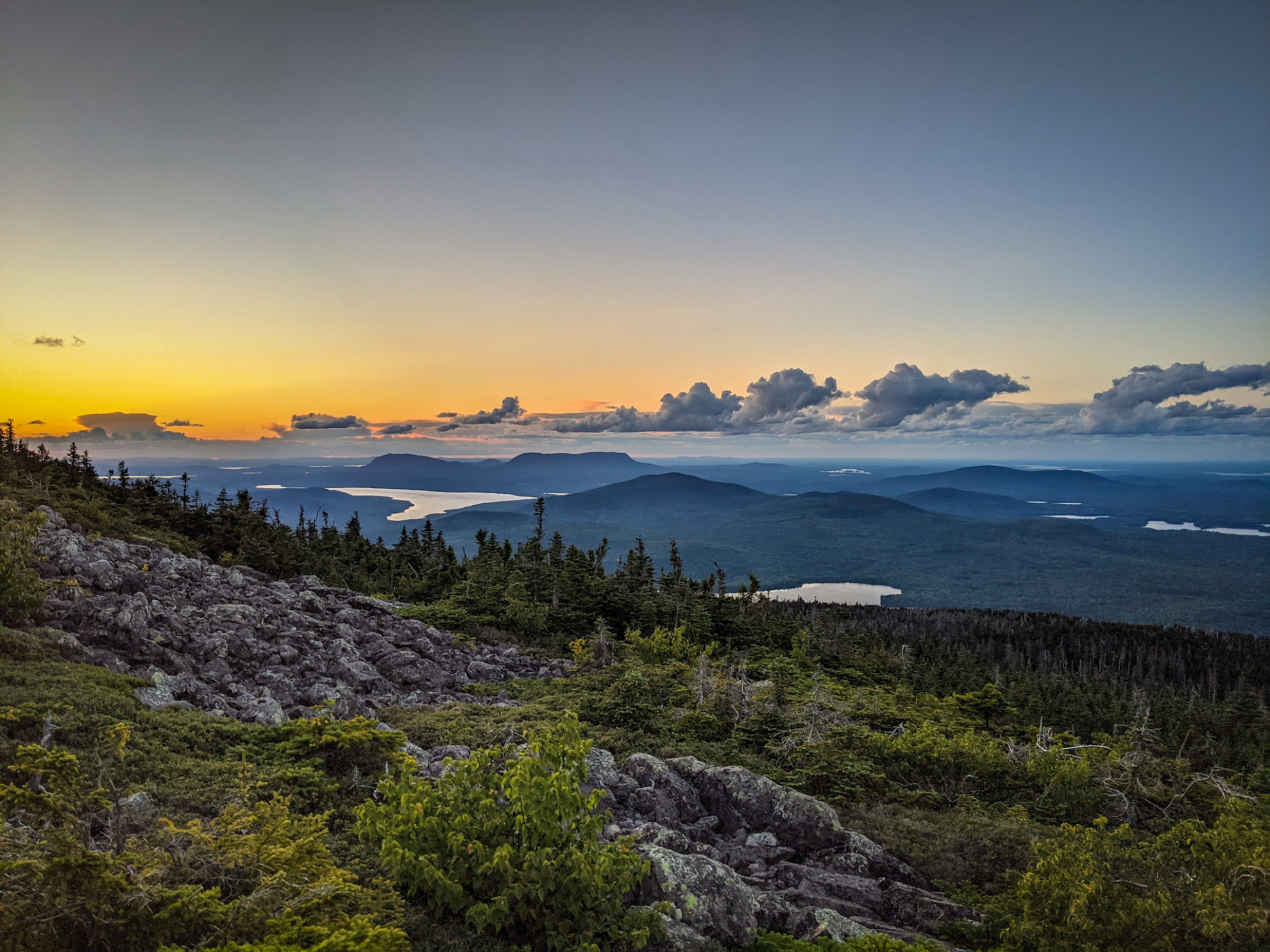
Chewonki’s network of alumni and friends also proved helpful during the pair’s journey, notably a former co-worker. “She was working in the Carrabassett Valley and offered to come to resupply us,” says Killen. The resupply was instrumental to the trip’s success because it meant the pair didn’t need to carry a full ten-day’s worth of food in their packs.
Throughout the trip, Killen used his iPhone to document the spectacular landscape. “My grandmother was an amateur photographer, and I grew up doing that,” says Killen. “I kept a journal throughout the trip, and the photos helped me keep track of where we were.” He also tried to capture the unique ecosystems the pair encountered – like a misty bog they found at a 3,000-foot elevation, tucked between two mountain peaks
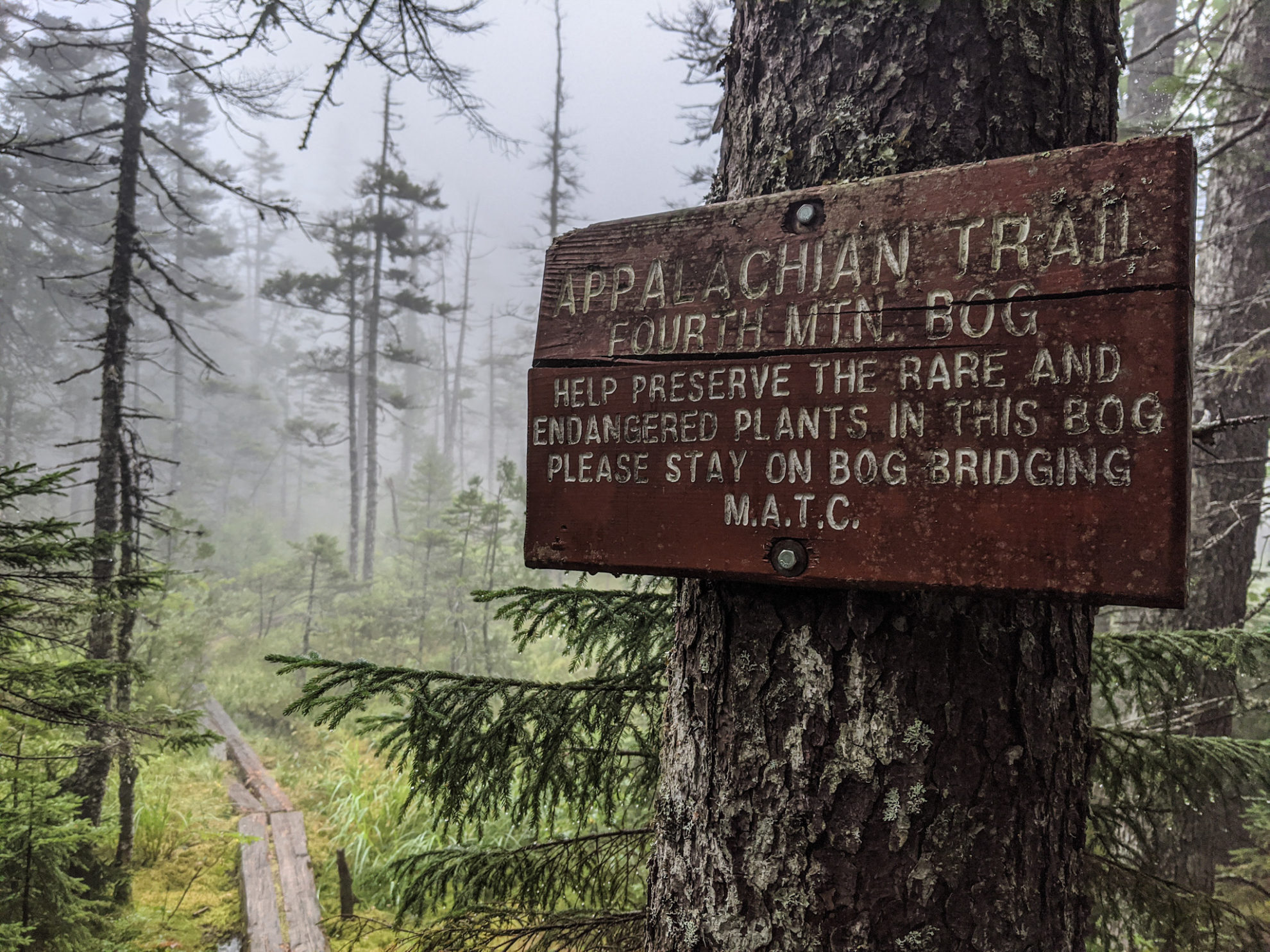
“It was unbelievable to be able to share this experience with a close friend,” says Killen. “It was one of the best things I’ve ever done, and all of it happened in the middle of a global pandemic.”
Killen returned to Pennsylvania at the end of August for the beginning of his remote, socially-distanced junior year at Carnegie Mellon, studying vocal performance. He is grateful to have had a short respite for the stress of current events. We wish Shane the best and hope to see him back in Maine soon.
